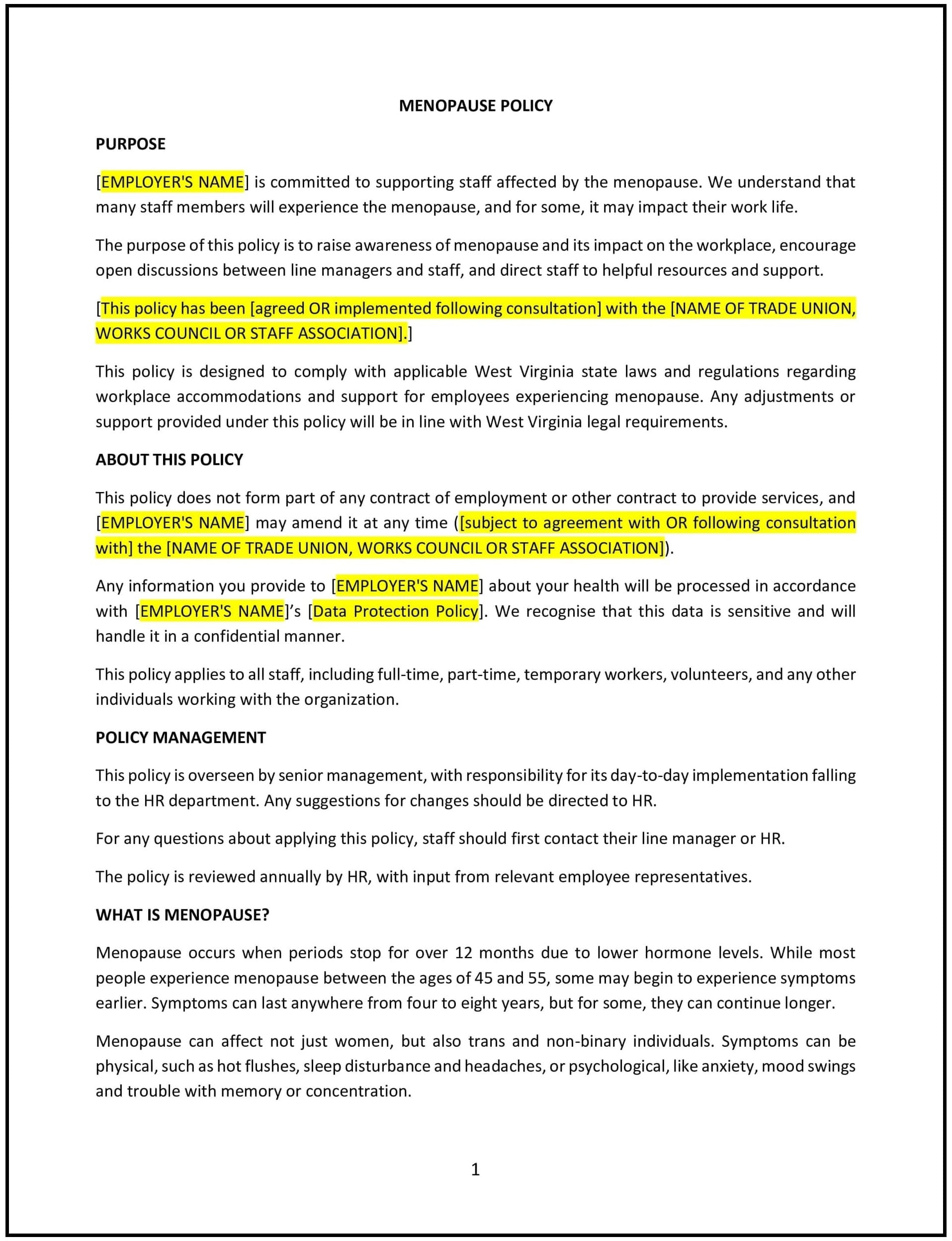Got contracts to review? While you're here for policies, let Cobrief make contract review effortless—start your free review now.

Customize this template for free
Menopause policy (West Virginia)
In West Virginia, a menopause policy provides guidance and support for employees experiencing menopause, recognizing its potential impact on physical, emotional, and mental well-being. This policy ensures a supportive and inclusive workplace environment while promoting awareness, understanding, and flexibility to accommodate individual needs.
The policy outlines workplace adjustments, resources for employees, and training for managers to create an environment that respects and supports employees going through menopause.
How to use this menopause policy (West Virginia)
- Raise awareness: Educate employees and managers about menopause, its symptoms, and its potential impact on work performance and well-being.
- Provide workplace adjustments: Include provisions for reasonable accommodations, such as flexible schedules, temperature control, or access to private rest areas.
- Encourage open communication: Create a supportive environment where employees feel comfortable discussing their needs with HR or supervisors.
- Train managers: Equip managers with the knowledge and skills to recognize and address menopause-related challenges with sensitivity.
- Support compliance: Ensure the policy aligns with West Virginia labor laws and anti-discrimination regulations to foster a respectful and inclusive workplace.
Benefits of using a menopause policy (West Virginia)
- Promotes inclusivity: Supports employees experiencing menopause, fostering a workplace culture of empathy and respect.
- Enhances well-being: Addresses challenges related to menopause, helping employees maintain their health and productivity.
- Improves retention: Demonstrates the organization’s commitment to employee support, reducing turnover among experienced staff.
- Reduces stigma: Raises awareness about menopause, encouraging understanding and reducing misconceptions or biases.
- Supports compliance: Aligns with West Virginia labor laws and anti-discrimination regulations, ensuring fair treatment for all employees.
Tips for using a menopause policy (West Virginia)
- Communicate the policy: Share the policy with all employees during onboarding and ensure it is accessible for reference.
- Encourage feedback: Invite employees to provide input on the policy to ensure it meets their needs and reflects workplace realities.
- Offer resources: Provide access to wellness programs, counseling, or healthcare resources tailored to menopause-related concerns.
- Monitor effectiveness: Regularly assess the policy’s impact and make adjustments based on employee feedback or changing workplace needs.
- Review regularly: Update the policy to reflect changes in West Virginia laws, workplace practices, or best practices in employee support.